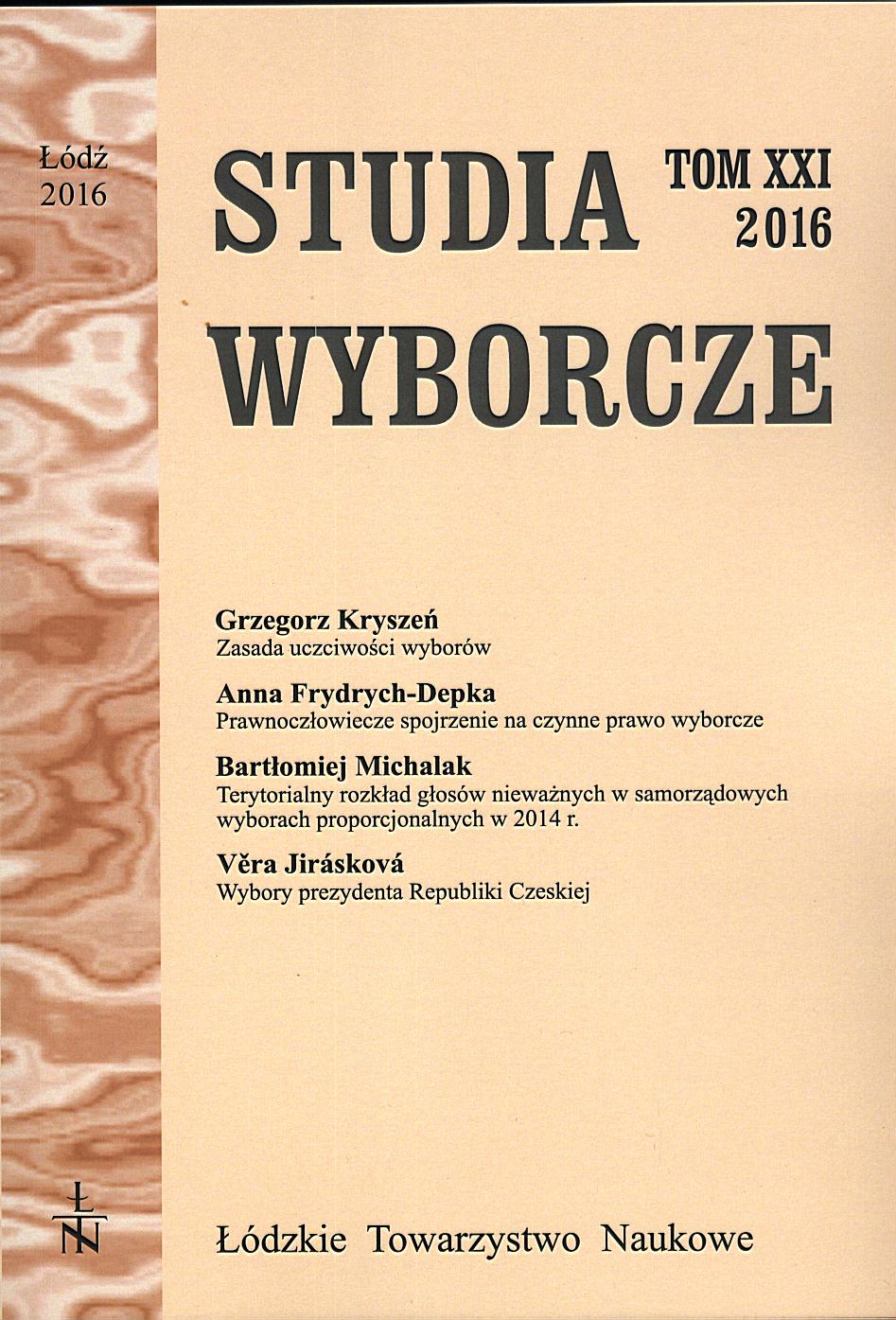Terytorialny rozkład głosów nieważnych w wyborach proporcjonalnych w Polsce a wybory samorządowe 2014
Territorial distribution of invalid votes during proportional representation elections in Poland versus local government elections in 2014
Author(s): Bartłomiej Michalak Subject(s): Politics / Political Sciences, Politics, Law, Constitution, Jurisprudence, Constitutional Law, Political Sciences, Public Law, Electoral systems
Published by: Łódzkie Towarzystwo Naukowe
Keywords: invalid votes; elections to the Sejm of the Republic of Poland; elections to the European Parliament; local government elections in 2014
Summary/Abstract: The number of invalid votes cast in Poland seems to be relatively high, when compared to other democratic countries. The phenomenon is pre-eminently noticeable in the case of local government elections. During these kind of elections being held in 2014, more than 1.7 million of invalid votes were introduced during voting to elect regional assemblies (which represents over 12% of all votes) and over 840,000 (approx. 8.2%) of election results to the voivodeship regional councils (pol. sejmiki). This brought in question the issues concerning reasons for this phenomenon, its dynamics and traceable patterns. The objective of this article is the analysis of territorial distribution of invalid votes during parliamentary elections and local government elections being performed in the form of proportional representation voting system in the years 2001–2014. The research problem is the issue of likelihood to obtain attainable identification of regions in which the scale of invalid votes cast in the subsequent parliamentary elections will significantly differ from the national percentage of invalid votes. Answering the question on how great the differences are? And whether the voivodeships, in which the given scale of these variations is the highest, are the same voivodeships that during local government elections in 2004 have also recorded the greatest deviation? Indubitable answer to this crucial question would unflinchingly lend credence to the thesis that the local government election outcomes were not adulterated.
Journal: Studia Wyborcze
- Issue Year: 2016
- Issue No: 21
- Page Range: 55-69
- Page Count: 15
- Language: Polish

